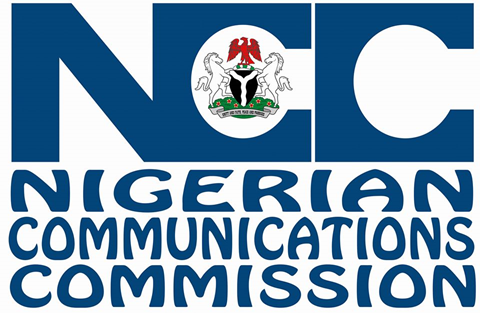Buoyed by the ongoing positive sentiments in the equities market and the need to cut down trade liabilities as well as reduce outstanding obligations, four quoted companies on the Nigerian Stock Exchange (NSE), including Unilever, Oando, Lafarge and Union Bank have announced their intentions to offer scrip dividends or rights issue to their existing stock holders.
Unilever Nigeria’s shareholders have already approved the company’s plan to raise N63 billion through right issues, while Lafarge Africa is hoping to get the nods of their shareholders on its proposed plan to raise N140 billion at its forthcoming AGM on June 7, 2017 in Lagos.
Similarly, Union Bank is already putting finishing touches on its N50 billion right Issues, having gotten the approval of its shareholders to raise from funds during the bank 2016 AGM. This ditto for Oando planning to raise N20 billion from its existing stockholders.
Unilever, currently facing working capital challenge, which stands at –N12 billion at the end of 2016, improved on its profit after tax (PAT) by a whopping 157.6 percent to N3.1 billion in 2016 despite the tough operating environment.
Lafarge is in the same boat with Unilever in terms working capital challenge as it has working capital deficit of –N77.6 billion. Union Bank which is planning to raise N50 billion, is battling high non-performing loan ratio, which stood at 7.65 percent in Q1 2017 and liquidity ratio which is just 7.0 percent higher than the 30 percent regulatory minimum. Although the lender’s gross earnings grew 24 percent to N33.8 billion during this period, its PAT declined 4 percent to N4.5 billion.

L – R (A) shows Carlos Wanderley, Head, Retail Banking, Union Bank Plc; Oyinkan Adewale, Chief Financial Officer, UBN Plc; Oscar N. Onyema, OON, Chief Executive Officer, The Nigerian Stock Exchange (NSE); Emeka Emuwa, Chief Executive Officer, UBN Plc; Cyril Odu, Chairman, UBN Plc and Haruna Jalo-Waziri, Executive Director, Capital Market, NSE at the UBN Plc Facts Behind the Figures Presentation (FBF) at the Exchange
‘Soromidayo George, Unilever’s Corporate Affairs Director, said in an email message that the company decided to raise fresh capital in order to pay down some of its trade liabilities and reduce “outstanding finance obligations in order to reduce finance costs which have increased significantly in recent times, thereby reducing profit and loss risk and reshaping the company’s balance sheet.”
She said the rights issue would providing additional US$ liquidity for Unilever Nigeria, through the US$ proceeds expected from foreign shareholders and insulate the business from exchange losses as a result of outstanding foreign currency debts.
Lafarge explained in a statement sent to the NSE recently that the proposed right issue will strengthen the company’s balance sheet and capital structure by reducing foreign currency exposure and optimizing the Lafarge Africa organization, adding it would also aim its expansion drive.
Oyinkan Adewale, Chief Financial Officer, Union Bank, explained in a video message posted on Youtube that the right issue would be used to fund the bank’s growth.
“We would lend part of the fund to selected group sectors of the economy,” she said. According to her, the bank’s lending process would be very strict, ensuring that it meet risk acceptance criteria.
Though the market has had an excellent run since this year, with many analysts projecting a pre-2008 performance return, some financial analysts have expressed divergent views on the right issues planned by the quoted companies.
Teslim Shittabey, a financial expert postulate that the companies planning right issues that have lesser free float shareholdings are likely to succeed, because the majority shareholders would easily pick their right issues.
Ayodele Akinwunmi, an analyst with First Bank told bussinessamlive in a telephone chat in Lagos that investors would be sceptical on Oando’s Right Issue, because of its frequency in coming to the market to raise capital.
He explained that investors with long-term view would go for Lafarge Africa’s rights Issue, because there are a lot of opportunities in the company in the long-term, while facing stiff competition from Dangote Cement, the market leader in the country’s cement industry.
“Unilever is a tricky one,” the First Bank analyst said, claiming the success of the conglomerate’s rights Issue may depend largely on the country’s economic recovery.
Robert Omotunde, analyst at Afrinvest West Africa Limited, opined that the positive sentiments, which the equity market is currently enjoying would spur these rights Issues to succeed.
Nigerian equities market hit a 23-month high on Monday, extending last week’s rally and helped by gains in cement, fuel retailing and banking shares. A pick-up in oil prices and a more stable currency have improved economic prospects in Nigeria, prompting investors to buy into the stock market.
Shares rose on Monday for the fifth consecutive session, with Dangote Cement, which accounts for a third of the market’s value, surging 8.85 percent. It helped push the benchmark index up 4.01 percent to cross 32,000 points in early trade.
The banking index rallied 11.6 percent, outperforming the overall market as fund managers took positions in anticipation of upbeat first-half results from Nigerian companies, due out next month.
Omotunde said this has helped boost the confidence of foreign portfolio investors, who are beginning to return to the Nigerian equity market.
Other economy indicators are also improving signposting that the economy is beginning to pick up as inflation slowed further to 17.24 percent in April from 17.26 percent in March, which was the third consecutive drop in inflation rate in 2017.
By Niyi Jacobs








